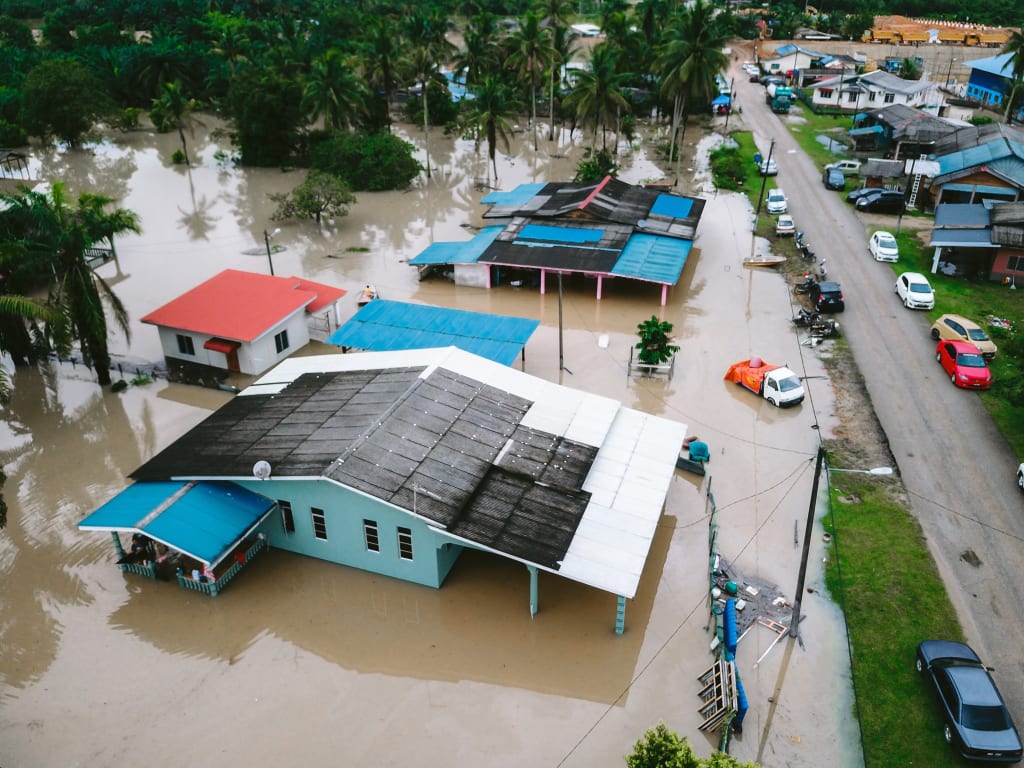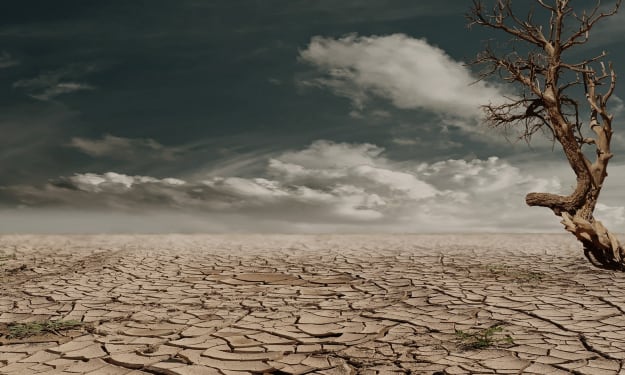Climate Change: A Global Crisis Impacting Nature and Humanity
A Call to Action: Confronting the Impact of Climate Change on Nature and Society

Climate change is an imminent threat that affects all aspects of life on Earth, from delicate ecosystems to the very fabric of human civilization. The scientific evidence leaves no room for doubt: the current 1.1 degrees Celsius of human-caused global warming is increasingly impacting nature and people worldwide. Despite attempts to adapt, frequent and severe climate extremes, like heatwaves and flooding, wreak havoc on ecosystems, cities, and critical infrastructure, jeopardizing a sustainable future for all.
Ecosystems, the intricate tapestry of life, bear the brunt of climate change's harsh reality. Deforestation, habitat loss, and rising temperatures pose significant risks to countless species. From the majestic high mountain environments to the vibrant coral reefs and the once pristine arctic ice-driven regions, the fingerprints of climate change are evident everywhere. Extreme events, such as marine heatwaves and devastating storms, drive alarming changes in ecosystems, forcing species towards polar regions or higher altitudes. The looming threat of tipping points adds urgency, as we stand at the precipice of irreversible environmental damage, where recovery becomes increasingly unlikely.
Cities, home to over half the global population, bustling centers of human activity, face amplified climate impacts, such as heatwaves and air pollution. Infrastructure in coastal areas is especially vulnerable to the creeping rise of sea levels and the fury of extreme weather events. In these urban landscapes, multiple climate hazards occur simultaneously, compounding the challenges for local communities. Disadvantaged and vulnerable communities, including low-income households and those residing in informal settlements, are disproportionately affected, exacerbating existing social inequalities. Recognizing and addressing these inequities are crucial steps in devising effective and fair climate policies that protect all members of society.
Maladaptation, although well-intentioned, can inadvertently worsen the impact on vulnerable groups. Indigenous peoples, ethnic minorities, and the poor often bear the brunt of climate change's wrath, as their communities have limited access to resources and support systems. Recognizing and addressing these social disparities is crucial in devising effective and fair climate policies that protect all members of society.
Nature, the lifeline of our planet, offers untapped potential to mitigate climate risks and enhance human livelihoods. By protecting and restoring 30 to 50 percent of the world's ecosystems on land and in the ocean, we can bolster climate resilience for plants and animals alike. Nature also plays a vital role in regulating the climate, providing clean water, controlling pests and diseases, and ensuring food security. By combining nature-based and engineering approaches in cities, we can generate multiple benefits for health, food security, and thriving ecosystems.
The urgency to act is undeniable, as climate, biodiversity, and human society are interconnected in an intricate dance of coexistence. Half-hearted measures are insufficient; what we need is a comprehensive and transformative approach to tackling the complex challenges posed by climate change. Prompt action is crucial to secure a sustainable and thriving future for the generations to come.
In conclusion, the scientific evidence underscores the severe impact of human-caused climate change on nature and people worldwide. Our actions today will shape how ecosystems and societies adapt to these challenges. Investing in nature, promoting sustainable practices, and fostering equitable policies are key to forging a path towards a healthier, livable planet. Policymakers must be guided by a clear roadmap to drive urgent global action in combating the far-reaching consequences of climate change. Together, we can make a tangible difference and safeguard a greener, more resilient future for generations to come. Embracing this opportunity to confront the challenges of climate change is our responsibility as stewards of this planet, and by doing so, we hold the power to shape a better, more sustainable world for generations to come.
About the Creator
Ali Ahmad Shahnawazi
Thanks to Vocal, which provides opportunities for sharing stories that inspire action for a sustainable future. Shedding light on critical environmental issues and fostering collective efforts for preservation.





Comments
There are no comments for this story
Be the first to respond and start the conversation.